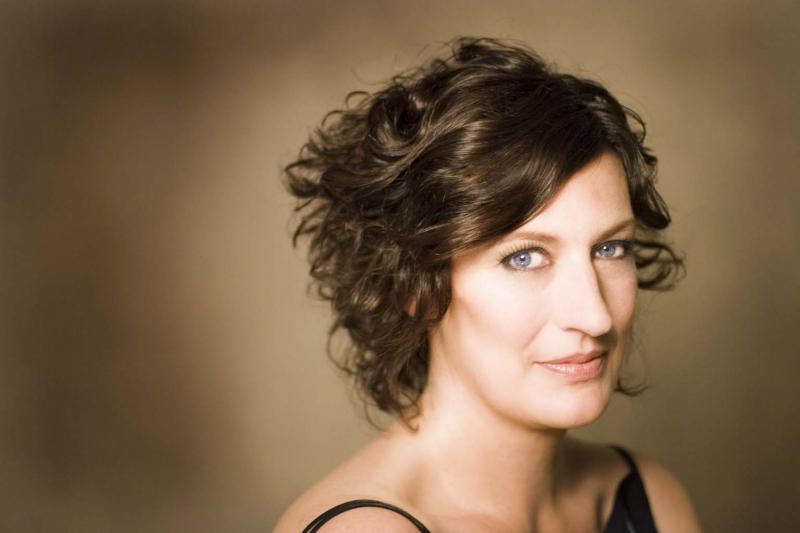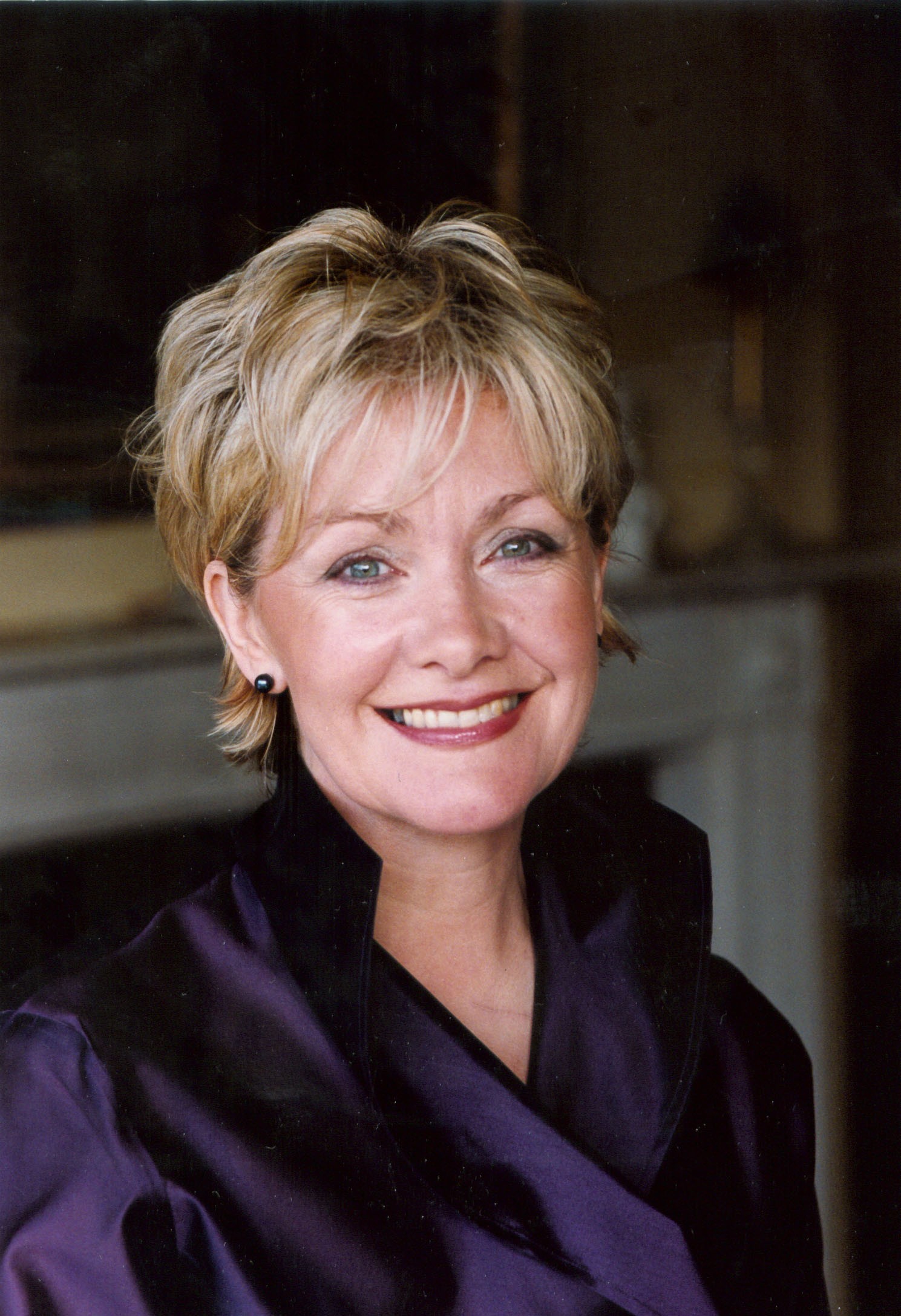L'Incoronazione di Poppea, The Academy of Ancient Music, Howarth, Barbican Hall | reviews, news & interviews
L'Incoronazione di Poppea, The Academy of Ancient Music, Howarth, Barbican Hall
L'Incoronazione di Poppea, The Academy of Ancient Music, Howarth, Barbican Hall
A fine romance, despite a lack of central chemistry

Monteverdi’s L’Incoronazione di Poppea is an opera with a one-track mind. The music throbs and pulses with dancing desire, suspensions and elaborate embellishments defer gratification, while recitative is poised constantly on the edge of melodic climax. Desire is everywhere, from the innocent flirtations of a young courtier and his lady, to the hopeless love of Ottone and of course the knowing, mature passions of the Emperor Nerone and his mistress Poppea.
And try the Academy of Ancient Music certainly did last night at the Barbican. It’s tough to lose any cast-member late in the day, and to lose Anna Caterina Antonacci as Poppea is a particularly serious blow. But it really needn’t have been fatal.
Commanding it all was Connolly, athletic and utterly sure as Nerone
At nearly 60, Lynne Dawson has had a tremendously successful career and now spends more time teaching students at the Royal Northern College of Music than singing herself. Not an obvious choice, then, for the youthful and virtuosic Poppea. Did the AAM feel like they needed a “name” to replace Antonacci? Surely it would have been better (and terribly English) to give the opportunity to one of the hordes of talented up-and-coming sopranos. It’s not like a cast that also included Sarah Connolly, Iestyn Davies and Matthew Rose was ever going to be lightweight.
 As it was, Dawson (pictured right) limped through the role vocally, never quite finding a gear. Intonation was wayward, tone lacking in body and phrase endings abandoned like so many loose threads on a hem. But more troubling than all of this was the lack of spark between her and Sarah Connolly’s magnificent, masculine Nerone. The libretto speaks again and again of Poppea’s fire, but what should have been burning was decidedly tepid, leaving Connolly and Elmar Gilbersson’s Lucano to steal the show with a love duet in Poppea’s praise whose vocal exertions were almost as X-rated as its actions.
As it was, Dawson (pictured right) limped through the role vocally, never quite finding a gear. Intonation was wayward, tone lacking in body and phrase endings abandoned like so many loose threads on a hem. But more troubling than all of this was the lack of spark between her and Sarah Connolly’s magnificent, masculine Nerone. The libretto speaks again and again of Poppea’s fire, but what should have been burning was decidedly tepid, leaving Connolly and Elmar Gilbersson’s Lucano to steal the show with a love duet in Poppea’s praise whose vocal exertions were almost as X-rated as its actions.
Leaving Poppea aside (as far as that is possible in this opera) this was a joy of an evening. Taking the semi out of semi-staged, directors Alexander Oliver and Timothy Nelson went to town with costumes, the Barbican’s flexible stage space and lighting rig, conjuring a vivid and utterly engaging spectacle that lacked little for not taking place in an opera house. The Barbican’s steep back steps made a natural focal point – a sort of snakes and ladders board for this drama of power and social mobility.
Commanding it all was Connolly, athletic and utterly sure in Nero’s flightiest moments of coloratura. Her tyrant was all the more terrifying for not having that seam of weakness we so often see – a calculating, rational bully who sent Matthew Rose’s thundering Seneca (sung as lightly as his manner was deliciously ponderous) to his death with brisk efficiency.
 There’s no getting past the cringing weakness of Ottone, but sung by Iestyn Davies (pictured left) he had a vocal gloss to compensate for any dramatic indignity, and some of the evening’s highlights were in the vocal interplay between Davies and Sophie Junker’s sweetly impetuous Drusilla. If anyone was expecting a character-tenor, Andrew Tortise’s Arnalta may have come as a shock, but it was a joy to hear the nurse’s lovely lullaby sung so delicately, and comedy found its place too in the final scene. Mention should also be made of young tenor Gwilym Bowen (Valletta/First Soldier) whose easy delivery and range make him one to watch.
There’s no getting past the cringing weakness of Ottone, but sung by Iestyn Davies (pictured left) he had a vocal gloss to compensate for any dramatic indignity, and some of the evening’s highlights were in the vocal interplay between Davies and Sophie Junker’s sweetly impetuous Drusilla. If anyone was expecting a character-tenor, Andrew Tortise’s Arnalta may have come as a shock, but it was a joy to hear the nurse’s lovely lullaby sung so delicately, and comedy found its place too in the final scene. Mention should also be made of young tenor Gwilym Bowen (Valletta/First Soldier) whose easy delivery and range make him one to watch.
Underpinning it all were the delicate tempo-relations and foot-stamping attack of the AAM, directed from the harpsichord by Robert Howarth. Placing the band in the centre of the stage helped draw attention to the intimacy that exists here between instruments and voices, allowing a visual as well as dramatic interplay that worked very well.
This was a wonderful performance that could have been exceptional. It’s a distinction that sounds like splitting hairs, but - as in all sexual encounters - to come this close and leave unsatisfied is hard to forgive.
rating
Explore topics
Share this article
The future of Arts Journalism
You can stop theartsdesk.com closing!
We urgently need financing to survive. Our fundraising drive has thus far raised £49,000 but we need to reach £100,000 or we will be forced to close. Please contribute here: https://gofund.me/c3f6033d
And if you can forward this information to anyone who might assist, we’d be grateful.

Subscribe to theartsdesk.com
Thank you for continuing to read our work on theartsdesk.com. For unlimited access to every article in its entirety, including our archive of more than 15,000 pieces, we're asking for £5 per month or £40 per year. We feel it's a very good deal, and hope you do too.
To take a subscription now simply click here.
And if you're looking for that extra gift for a friend or family member, why not treat them to a theartsdesk.com gift subscription?
more Opera
 The Makropulos Case, Royal Opera - pointless feminist complications
Katie Mitchell sucks the strangeness from Janáček’s clash of legalese and eternal life
The Makropulos Case, Royal Opera - pointless feminist complications
Katie Mitchell sucks the strangeness from Janáček’s clash of legalese and eternal life
 First Person: Kerem Hasan on the transformative experience of conducting Jake Heggie's 'Dead Man Walking'
English National Opera's production of a 21st century milestone has been a tough journey
First Person: Kerem Hasan on the transformative experience of conducting Jake Heggie's 'Dead Man Walking'
English National Opera's production of a 21st century milestone has been a tough journey
 Madama Butterfly, Irish National Opera review - visual and vocal wings, earthbound soul
Celine Byrne sings gorgeously but doesn’t round out a great operatic character study
Madama Butterfly, Irish National Opera review - visual and vocal wings, earthbound soul
Celine Byrne sings gorgeously but doesn’t round out a great operatic character study
 theartsdesk at Wexford Festival Opera 2025 - two strong productions, mostly fine casting, and a star is born
Four operas and an outstanding lunchtime recital in two days
theartsdesk at Wexford Festival Opera 2025 - two strong productions, mostly fine casting, and a star is born
Four operas and an outstanding lunchtime recital in two days
 The Railway Children, Glyndebourne review - right train, wrong station
Talent-loaded Mark-Anthony Turnage opera excursion heads down a mistaken track
The Railway Children, Glyndebourne review - right train, wrong station
Talent-loaded Mark-Anthony Turnage opera excursion heads down a mistaken track
 La bohème, Opera North review - still young at 32
Love and separation, ecstasy and heartbreak, in masterfully updated Puccini
La bohème, Opera North review - still young at 32
Love and separation, ecstasy and heartbreak, in masterfully updated Puccini
 Albert Herring, English National Opera review - a great comedy with depths fully realised
Britten’s delight was never made for the Coliseum, but it works on its first outing there
Albert Herring, English National Opera review - a great comedy with depths fully realised
Britten’s delight was never made for the Coliseum, but it works on its first outing there
 Carmen, English National Opera review - not quite dangerous
Hopes for Niamh O’Sullivan only partly fulfilled, though much good singing throughout
Carmen, English National Opera review - not quite dangerous
Hopes for Niamh O’Sullivan only partly fulfilled, though much good singing throughout
 Giustino, Linbury Theatre review - a stylish account of a slight opera
Gods, mortals and monsters do battle in Handel's charming drama
Giustino, Linbury Theatre review - a stylish account of a slight opera
Gods, mortals and monsters do battle in Handel's charming drama
 Susanna, Opera North review - hybrid staging of a Handel oratorio
Dance and signing complement outstanding singing in a story of virtue rewarded
Susanna, Opera North review - hybrid staging of a Handel oratorio
Dance and signing complement outstanding singing in a story of virtue rewarded
 Ariodante, Opéra Garnier, Paris review - a blast of Baroque beauty
A near-perfect night at the opera
Ariodante, Opéra Garnier, Paris review - a blast of Baroque beauty
A near-perfect night at the opera
 Cinderella/La Cenerentola, English National Opera review - the truth behind the tinsel
Appealing performances cut through hyperactive stagecraft
Cinderella/La Cenerentola, English National Opera review - the truth behind the tinsel
Appealing performances cut through hyperactive stagecraft

Add comment